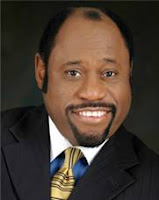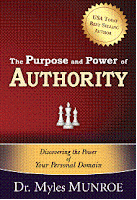 It is time for a FIRST Wild Card Tour book review! If you wish to join the FIRST blog alliance, just click the button. We are a group of reviewers who tour Christian books. A Wild Card post includes a brief bio of the author and a full chapter from each book toured. The reason it is called a FIRST Wild Card Tour is that you never know if the book will be fiction, non~fiction, for young, or for old…or for somewhere in between! Enjoy your free peek into the book!
It is time for a FIRST Wild Card Tour book review! If you wish to join the FIRST blog alliance, just click the button. We are a group of reviewers who tour Christian books. A Wild Card post includes a brief bio of the author and a full chapter from each book toured. The reason it is called a FIRST Wild Card Tour is that you never know if the book will be fiction, non~fiction, for young, or for old…or for somewhere in between! Enjoy your free peek into the book!
You never know when I might play a wild card on you!
***Special thanks to Audra Jennings, Senior Media Specialist, The B&B Media Group for sending me a review copy.***

Anna Smith is a wife and mother of six children. Her husband Martin was the lead singer for the band Delirious? for over sixteen years. Smith and her husband founded CompassionArt, a nonprofit organization built to raise money through art and music to help orphans and the poor around the world. Meet Mrs. Smith is Smith’s first book. She and her family reside in the seaside village of Rustington, England.
Visit the author’s website.
Are you tired of just feeling bogged down by your daily life? Do you wonder if your life will have an impact on your family or, even yet, the world? Come join Anna Smith as she encourages you to live a life of abandoned love for Christ.
Meet Mrs. Smith is Anna Smith’s life story—the story of how God used her, alongside her husband Martin, to raise a family, live a wild life for God, launch the worldwide phenomenon that is Delirious?, and start a ministry to orphans around the world. With a good dose of spiritual insight, parenting advice, and wry humor, Anna shares the hard lessons she’s learned. She also shares stories from behind some of Delirious?’s most popular songs while encouraging readers with her warm authentic voice.
Product Details:
List Price: $14.99
Paperback: 240 pages
Publisher: David C. Cook (February 1, 2011)
Language: English
ISBN-10: 1434702030
ISBN-13: 978-1434702036
AND NOW…THE FIRST CHAPTER:
The phone rings just as I’m straining the potatoes and promising the waiting tribe that supper’s nearly ready.
“Indi, get back to the table.… Noah, try not to spill the water, my love.… Elle, can you encourage Levi not to arch his back in the high chair?”
Chaos.
I’m feeling slightly nauseous, and I wish the pregnancy hormones would take mealtimes into consideration—it’s far too inconvenient for me to have my head down over the toilet right now. I hear ringing from the other room.
I rush to pick up the phone.
“Helloooo, Anna here.”
“Hi, love, how are you?” Martin says.
“Yeah, good … general supper-time craziness, but we’re all fine. How’s your day been? What’ve you been up to?”
As he replies, I sense something different in Martin’s voice tonight. I don’t know, he seems bothered or troubled … just different. But there’s no time to chat.
“Can’t you phone in a couple of hours?” I ask him.
“Probably not,” he replies. Later I guess that he’ll be onstage or fast asleep in his hotel—I don’t know; I get confused with the time zones. He starts to talk about everything he’s experienced in India and how his heart’s caving in at the poverty he’s seeing.
What can I say?
“Sorry, honey, must be awful,” I say. “Right, got to go, the broccoli’s disintegrating.”
My words sound pathetic. And I can’t quite hear him anyway as the line is breaking up.
“Bye, I’ll call again soon, I love you.”
What horrible timing! As Martin wrestles with the impact of this great poverty he’s seeing and experiencing, I’m here trying to hold down the fort. He’s getting “all emotional” about someone else’s kids, but all I can think of in that moment is how I need him here. Our children miss their daddy.
But every trip to India seems to ratchet up the intensity inside Martin—something’s breaking his heart: He’s moved, challenged, and provoked by everything around him there. What’s God saying? What’s shifting? Martin’s seen poverty before, but this is something else altogether. It’s another telephone call we’ll have to resume later when the kids are in bed and my head’s clearer.
The thing is, I want him in the kitchen with me now, pouring out his heart to me, like a proper married couple going on this journey of discovery together.
Not tonight though. He’s somewhere in India, and I’m watching Pop Idol on TV.
~~~~~
We have been on a journey of so many paradoxes.
I’m on this adventure with my kids and my husband, Martin, who toured the world with the band Delirious? On this path I discovered both the joys and the chaos of family, but along the way, we
found that our chaos was little compared to the chaos of the poverty in the world.
The clash of emotions and heartbreaking stories led my children and me to a rubbish dump, a slum where people live, outside Hyderabad, India.
What am I doing here? I thought as I stood there in the refuse and dirt. Why did I bring my children to this place? Then I saw the children run up to us with huge smiles on their beautiful faces—and I wept when they sang to us.
As I said before, this has been a journey of paradoxes.
The book in your hands is about this exhilarating, enriching, exciting, and downright exhausting journey. It’s about being a wife, mother, friend, auntie, and sister. I’m a mother to six children, and due to that fact, it’s a miracle that this book has actually been published and that I’m not yet wearing a hairnet to bed and putting my dentures in a plastic cup! Rather than wait until my life calms down, I want to tell someone my story while I am right in the middle of it.
This book is about not wishing away the time or waiting until the house is empty before we look out to the world beyond our own. It’s about seeking God in all of the mess and exhaustion.
On this path, we look back on key events as turning points. For me, one of those moments came fifteen years ago. That moment accelerated my passion to embrace life to the fullest and birthed a band that played to hundreds of thousands of people around the world and spread a powerful message to the nations.
After three house moves, seven pregnancies, numerous flights with children in tow, many trips to India and Africa, dozens of tour buses, hundreds of gigs, thousands of earplugs in little ears, and too many dirty nappies (some might call them diapers!) to mention, I’m here to share a little of my story, from the sublime to the ridiculous.
Thanks for coming along!
—Anna
Chapter 1: The Longest Night
Little did I know that one moment would change everything.
I sit motionless in the passenger seat. Frightened and disorientated, my muddled brain tries to make sense of my surroundings. Slowly I turn my head and look across at Martin lying semiconscious, his inert body collapsed in a heap next to me. His head is slumped against the steering wheel, his foot in perfect synchrony, pressed down flat on the accelerator.
I don’t know what to do.
My head feels fuzzy and my thoughts move in slow motion.
~~~~~
At the time it seemed like a great idea to drive through the night. Waking up at home sounded sweet. There’s nothing like your own bed, and after spending a week cooped up in a leaky caravan, sleeping under what I can only describe as soft cardboard, my bed called to me.
The green Ford Sierra did us proud, and the thought of seeing my sister’s baby, Abigail, who’d been born ten days early (which was the motivation for our early departure), gave Martin and me lots to chat about on the way. My brother Jon fell asleep as soon as we left the campsite, so we had the whole journey to talk while eighties classics pumped out of our dilapidated stereo.
The A1 motorway continued on forever.
Martin had endured a hectic week, as part of his job was recording live music and seminars at conferences around the country, and this week we’d been at Grapevine in Lincolnshire. So it wasn’t long before we’d exhausted all conversation and stared at the road, willing the journey to come to an end. Jon snoozed away in the back of the car—he looked peaceful, albeit a tad uncomfortable, curled up next to a load of musical equipment, trying to muster up an agreeable position with the seat belt across his face.
Five hours later we drove onto the A259 to Littlehampton. Waves of excitement came over me at the thought of seeing baby Abigail. I remember the delight of seeing the familiar Windmill Pub with the patrons long gone and the feeling that we were the only ones awake in this sleepy village. We were so nearly home.
The next few moments would change our lives forever, but the God who does not slumber watched over us.
~~~~~
My eyes photograph the scene. One by one, images develop to make sense of things: a green car turned the wrong way round; a crushed and crumbling brick wall; smoke swirling in the foreground; the driver motionless, covered in blood. My other senses start to kick into gear: Intoxicating fumes creep into my nostrils; the hiss and crackle of the engine whisper in my ear.
These impressions become clearer, and my thoughts accelerate—I need to get Martin and Jon out of the car. I desperately kick my chair back, but it stubbornly refuses to move. Every part of me clambers and scrambles to escape, but I can’t get free.
“Someone call for help!” The words tumble out of my mouth and race into the cold night air, frantically searching for help.
Finally, I manage to force open my door. I tentatively step out of the car. My two-inch plastic heels crunch underfoot as fragments of glass break like icicles with every step.
I nervously survey the scene, but the dark gives nothing away. A ten-minute eternity passes. I wait, a thousand thoughts sparking a thousand fears. Suddenly, two fire engines and an ambulance careen around the corner, and the stillness is swallowed by a voracious urgency: lights and people, questions and confusion.
~~~~~
I’m ushered into the ambulance, the paramedics buzzing around me, assaulting my weary brain with questions. Jon somehow managed to get himself out of the car, but now he’s dressed in a green surgical
gown, hallucinating and singing “Yellow Submarine,” the shock of it all messing with his reality.
But what about Martin—what about my husband?
Their answer is a constant, unsatisfying repetition: “We are doing all that we can.”
The firefighters cut the roof off the car, the harsh grinding of metal against metal, battling to free the fragile body inside. I’m riveted to the action but can’t watch—my heart needs protection, but my head doesn’t want to miss any important detail. Fear and panic and emptiness and shock wrap around me like an oppressive shelter. Then in the midst of all the craziness, I see my dad running toward me, abandoned in panic. All I can think is that I need to tell him it’s going to be all right. He holds me; he’s shaking with fear, a thousand questions falling from his trembling lips.
The hours drag on heavily. People move around me in a haze, and nothing seems to change. I feel exhausted, confused, scared, and numb. The firefighters finally cut Martin free from the wreckage,
and they are relieved to find that his feet are still attached to the legs that have been hidden from sight for two hours. Now that he’s free, the paramedics are desperate to get him to the surgeon to repair his
broken and battered body.
Blood is everywhere.
As we’re leaving I hear one of the firefighters asking about the fourth passenger. Where is she? he asks. The blonde girl in the backseat?
To this day no one knows who she was. Either Jon had smuggled a new girlfriend home, or heaven made sure we weren’t alone on this night.
Maybe she was our angel.
©2011 Cook Communications Ministries. Meet Mrs. Smith by Anna Smith. Used with permission. May not be further reproduced. All rights reserved.
MY REVIEW:
I loved reading Meet Mrs. Smith! Mrs. Smith is Anna Smith wife to Martin Smith of Delirious and mother of 6. I just happen to be a mother of 6, also. I guess that’s why I could relate to her book so easily.
Meet Mrs. Smith is a biography. She shares a lot of her life in this book. From the difficulties of being married to a musician who travels a lot to experiencing a miscarriage. She even takes all 6 kids on airplanes while traveling! I did that. once. Once was enough for me.
Mrs. Smith shares what God has done in her and her family’s lives. And how she and her husband starting anew ministry with other singers and song writers to help others around the world.
One chapter in the book is entitled My Top 10 Survival Tips. In another chapter, Mrs. Smith shares what works for her in running a busy household.
Meet Mrs. Smith was published at the same time as her husbands biography Delirious, which I had the chance to review also. I have never heard of husband and wife biographies being released at the same time. I really enjoyed both books.
*Disclaimer: I received a copy of this book for review purposes. I received no other compensation. My opinions are my own.











